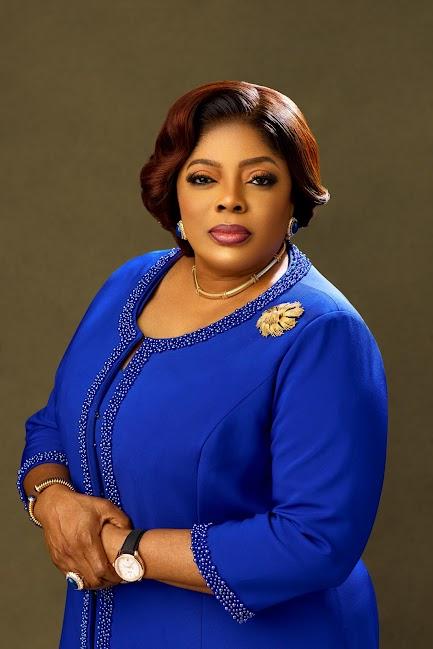- Osinbajo Advises States Against Raising IGR at All Costs
Vice-President Yemi Osinbajo on Thursday advised state governments not to fall into the temptation to prioritise raising Internally Generated Revenue at all costs.
He said if such was done in a way that would stifle today’s entrepreneurs and investors, there would be a great price to pay later.
Osinbajo said this in his keynote address at the Leadership Newspapers Awards and Conference 2017, with the theme, ‘Towards financially viable state governments’.
He cited access to broadband issue as an example of how states could take decisions that could make or mar their economic future.
He said the argument at meetings of the National Economic Council, which he chairs, was that states should not charge prohibitive prices for installing fibre optic cables, and that the goal should be covering the entire country with broadband as an investment in the future.
This, he argued, would be a short-term gain at the expense of the future potential and profit.
The Vice President stated, “In the future, and that future is right here on our doorsteps, our states will thrive or suffer on the strength of things like how fast and cheap the Internet is.
“Thankfully, NEC resolved in favour of low standard fees, but this will not include the cost of damage to roads. But the states also agreed to ensure that roads being built must have ducts to prevent costly damage to roads when cables for various types of infrastructure and services are being laid.
“This conversation about creating financially viable states should therefore be viewed through the lens of the medium to the long-term.”
He added, “There will always be the temptation to prioritise raising Internally Generated Revenue at all costs. If this is done in a manner that stifles today’s entrepreneurs and investors, then clearly, there will be a great price to pay down the line.
“So, it is clear that governors have to think beyond four or eight-year cycles. There must be a commitment to laying a foundation that our successors will build on, and for successors to be ready to build on foundations laid.”
Osinbajo identified one of the challenges with governance in Nigeria today as the penchant for dismantling or dismissing everything inherited.
“Our problem, of course, in our country is not in new ideas or starting projects, it is the lack of rigour and discipline to complete projects and to maintain them,” he added.
He cited the example of Lagos State, which he said was possibly the most successful subnational economy because of the continuity in the implementation of a plan.
He said each successive governor in the state had followed the plan in financial and land reforms as well as infrastructure development laid out by the Asiwaju Bola Tinubu’s administration.
The Vice President stated, “Even though the Treasury Single Account was not our idea, we recognised its value and realised that the real challenge was the lacklustre implementation that it had suffered over the years.
“And so, President Buhari issued his first Presidential Order mandating full compliance with the TSA. The closure of more than 20,000 commercial bank accounts that followed has resulted in monthly savings of N4bn that would have gone on bank charges alone. That’s more resources for us to use for the benefit of Nigerians.
“The Lagos-Kano standard gauge, Warri-Aladja rail and Second Niger Bridge have always been in the pipeline. We have taken the concrete steps required to complete them. We raised the counterpart funding in the cases of those requiring loans, and made sure the contractors are getting the job done.”
He added, “Financial viability is not just about earning more, it’s also as much about doing more with less, which is our mantra at the federal level; making the little we have go as far as possible.
“How? By embracing fiscal prudence, debt management, controlling overheads, and so on.”
Osinbajo said state governments must think, plan and act as countries.
This, he noted, was necessary because 10 of the country’s states with the highest Gross Domestic Products had higher GDPs than over 15 African countries.
He said, “Thinking like a country means planning like one. And I think that one of the most important things for states to do is to begin to think and plan like countries do. And we cannot wait for constitutional reforms that may be required for further devolution (of power) to the states.
“We must act whether or not there is this reform. In many cases, states have control of some of the resources that can make a tremendous difference in the way that they operate.”
Osinbajo recalled that the six-year period of the late Chief Obafemi Awolowo as Premier of the then Western Region from 1954 to 1960 was often cited as one of the most progressive of any government in the developing world.
He asked how the late sage’s phenomenal achievements were possible at a time when there was no oil or federal revenue.
Osinbajo added that financial viability was achieved mostly from taxes and revenues from agriculture, especially cocoa, and some from mineral resources.
He said free education, which was launched by that government, was directly on the back of income from taxes.
The Vice President regretted that with military rule from 1967 and oil money, every one forgot about taxes.
He added, “So, today, the states in the old Western Region, aside from Lagos, do not earn enough in taxes or anything else to pay salaries, let alone do major capital projects.
“Without federal allocation, most states cannot survive. Indeed, the problem of the states is the same as that of the Federal Government, a complete reliance on a source of revenue that is extractive, and so, requires no creativity or productivity whatsoever.”
Osinbajo said a lot of the answers to the challenge of creating financially viable state governments were the same as the problems of creating a financially viable country or nation state, hence the prescriptions would always be similar.
For the Federal Government, he stated that one of the priorities had been diversifying the country’s revenue base.
He said, “When we assumed office in 2015, there were only about 14 million taxpayers out of the almost 70 million economically active Nigerian citizens. Indeed, of the 943 persons who pay over N10m in assessed taxes in Nigeria, 941 of them live in Lagos; the other two live in Ogun State.
“The question you have to ask is: how does any country survive when only a fifth of those who should be paying taxes actually pay them? And so, we set out to implement the needed reforms, including our tax amnesty, which is being done in partnership with the state tax authorities.
“Today, we have added nearly six million taxpayers. It is taxes usually that will pay for development.”


 Forex4 weeks ago
Forex4 weeks ago
 Naira4 weeks ago
Naira4 weeks ago
 Billionaire Watch3 weeks ago
Billionaire Watch3 weeks ago



 Naira4 weeks ago
Naira4 weeks ago






 Naira3 weeks ago
Naira3 weeks ago


 Naira2 weeks ago
Naira2 weeks ago






 Naira2 weeks ago
Naira2 weeks ago
 Economy4 weeks ago
Economy4 weeks ago























